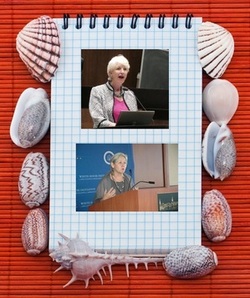
While publishing two posts by guest authors, I time-shifted back to the supposedly halcyon years of my youth, the late 50s and early 60s. For the last three weeks, I've watched the backward-looking hit TV series, Mad Men, from Season 1, Episode 1 through the final episode of Season 4. The show -- now in its fifth year -- depicts a presumably "golden era" of prosperity, tarnished only by crass capitalism on resplendent display at a Madison Avenue ad agency. As Mad Men teaches, things were great back then as long as you ignored the blatant sexism, objectification of women, abuse of alcohol and tobacco, racism, gay-bashing and other societal mortifications.
These so-called good old days are thoroughly debunked by Frank Rich, one of my favorite authors, in a recent New Yorker piece ("Mayberry R.I.P.[:] Declinist panic. Hysterical nostalgia. America may not be over, but it is certainly in thrall to the idea."). As he reminds us, our best days are not necessarily behind us, though we pine for a mythical past featuring all the realism of a doctored Instagram photo.
Rich is right. As a country, America has always faced daunting problems, which we often tried our darnedest to overlook. Mayberry as a notion may have salved our escapist needs. Mayberry as a prototypically homey and welcoming Southern city, however, was a lie (notwithstanding that it once welcomed some homespun Italian immigrants). Similarly, as Rich notes, "American exceptionalism" is not some quintessential trait lauded by Alexis de Tocqueville but a sneering coinage bandied by one Communist, Joseph Stalin, to another.
Witness the latest "America-is-wonderful" distortions. Mitt Romney tells audiences that, unlike President Obama, he will never apologize for America. For his part, the President claims he took a calculated political risk in bailing out the American auto industry because he was betting on the American worker and U.S. industry. While auto workers deserve credit, the industry was saved -- in my view -- by the purgative of a forced bankruptcy, the injection of billions of taxpayer dollars, the shedding of unaffordable pensions, and Detroit's belated adoption of manufacturing efficiencies introduced years earlier by Germans, Koreans, Japanese and Italians.
I'm not saying we lack admirable traits, but rather that our "secret sauce" has always been our comparatively more welcoming immigration policies, as I told the Los Angeles Daily Journal recently:
| [The] cornerstone of our exceptionalism is our willingness to accept immigrants as equal human beings and allow them to contribute and become citizens and achieve the American dream while they help us to achieve the American dream. |
We should stop ignoring the scientific method and at last accept Einstein's definition of insanity. We must stop "doing the same thing over and over again and expecting different results." We must stop being "amnesiac, hypocritical, outraged [and] just plain apathetic . . ." Otherwise, we inhabitants of this "Nation of Immigrators" are Immigration's real-life "Mad Men [and Women]."




 RSS Feed
RSS Feed
